Honorary and Invited Speakers
Honorary Speakers
Honorary Lecturers
Invited Speakers
HONORARY SPEAKERS
BART VAN ARK
University of Manchester; The Productivity Institute, UK
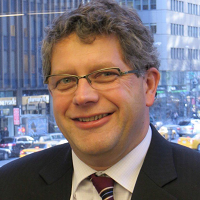
Perspectives on Productivity: Benefits to Economy, Business, Workers and Society
For the past decade and a half, productivity growth has slowed down around the world. This is a major concern because productivity is key driver of long-term economic growth. It is also surprising as new (digital) technologies should have helped productivity to improve. Following the COVID-19 crisis, productivity needs to resurface as part of the recovery. In this lecture, Bart van Ark reviews the reasons for the slowdown and what can be done to unlock productivity again. In particular, he will argue that a concerted effort by business, government and the workforce is needed to strengthen the economies’ absorptive capacity to innovate. We also need to better understand how productivity helps to improve people’s well-being.
Time and date of presentation: April 14, 2021 at 10.15 a.m. (GMT +3)
The stream of the session may be viewed via the link
ANTONIO DAMASIO
University of Southern California, USA

Feeling, Knowing and Artificial Intelligence
Understanding the physiology behind feelings is essential to provide a comprehensive understanding of the human mind and of consciousness in particular. It is reasonable to transfer some of these developments to the world of Artificial Intelligence.
Time and date of presentation: April 16, 2021 at 17.15 p.m. (GMT +3)
The stream of the session may be viewed via the link
MICHAEL LANDESMANN
Johannes Kepler University, Austria
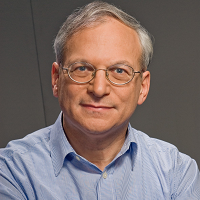
COVID-19 and Structural Change in the European Economy
Covid-19 has hit the European economy when it was still recovering from the impact of the financial and economic crisis which had started in 2008/09, had caused a double dip recession, challenged the architecture of the European Monetary Union (EMU) and revealed severe imbalances between member states (in external accounts, in the financial fragility of their banking system, and in the scope to counteract the crisis with fiscal instruments). The Covid-19 crisis has generated new responses at the EU level (especially establishing the Resilience and Recovery Fund which builds on joint debt issuance, but also joint measures to support employment programs, etc.) and it will be one of the tasks of this presentation to analyse whether these measures will pave the way to a longer-term trajectory of stronger EU-level economic integration which can tackle some of the deep-seated deficiencies in its economic and political architecture. Another aspect of this talk will be to analyse longer-term impacts of the Covid-19 crisis which combines with underlying longer-term changes in technologies and work organisation on distributional issues, such as occupational structures, skill demands, global and regional value chains, etc.
Time and date of presentation: April 16, 2021 at 13.45 p.m. (GMT +3)
The stream of the session may be viewed via the link
STAFFAN LINDBERG
University of Gothenburg, Sweden
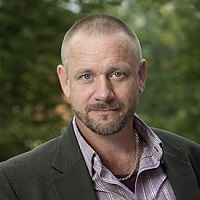
Democracy and Autocracy in 2020
In this talk Professor Lindberg analyses the trends in the world and across regions for democracy and autocracy. The dynamics of the last decades suggest an increasing tension between countries in the world aligning themselves with either side, and the empirical data suggests that autocracies are winning: Levels of liberal democracy are in decline and fewer and fewer countries qualify even as electoral democracies. V-Dem’s Democracy Report 2021 documents that over 2/3 of the world’s population now live in autocracies. At the same time, a growing body of research from medical and natural sciences to economics and social science provide rigorous evidence that democracy has dividends for increasing life expectancy, economic growth, environmental protection, and sustainable societies. This disjuncture and the specters it offers, it what this lecture is about.
Time and date of presentation: April 16, 2021 at 15.30 p.m. (GMT +3)
The stream of the session may be viewed via the link
TOMASZ M. MICKIEWICZ
Aston Business School, Aston University, UK
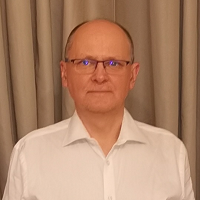
Firms, Markets and Institutions: Alternative Theoretical Frameworks
Both firms and markets are organisations, and so are institutions. From business and economics perspective the relevant question about organisations relates to transaction costs, and this is the language that can bridge all areas of research on organisations. It also bridges different conceptualisations of institutions in business and economics research: institutional voids, market-supporting institutions, quality of government perspective. Yet transaction costs language fails when we consider informal institutions and culture in particular. The underlying reason is that the way we define human objectives in economics and business may be too narrow.
This keynote lecture is joint event of HSE University and European Association for Comparative Economic Studies (EACES)
Time and date of presentation: April 19, 2021 at 15.30 p.m. (GMT +3)
The stream of the session may be viewed via the link
MIKHAIL MYASNIKOVICH
The Eurasian Economic Commission
Implementation of Strategic Guidelines for the Development of Eurasian Economic Integration until 2025:
Economic Growth Based on Strengthening Confidence
For the six-year period since its inception, the Eurasian Economic Union (EAEU) has managed to pass a significant stage in its development, forming the integral economic model for its member states and serving as part of the global economic architecture.
The Covid-19 pandemic of 2020 could be called the real ‘catalyst’, which has sped up the integration processes at the EAEU. Against the backdrop of large-scale epidemiological restrictions, lapsing global GDP, heightened trade rivalry and growth of protectionism throughout the world economy, the advantages of integration have become more obvious, as well as those areas of priority development that need to be pursued in order to overcome existing challenges and problems.
The tasks of identifying vectors, key measures and new mechanisms necessary for promoting integration and achieving the EAEU’s goals have been set out in a document approved by the Supreme Eurasian Economic Council in December 2020 – ‘Strategic Guidelines for the Development of Eurasian Economic Integration until 2025’. Strategy-2025 not only taps the existing potential of the Union Treaty signed in 2014, but also proposes new areas of integration for the EAEU.
As part of his presentation, Chairman of the Board of the Eurasian Economic Commission, Doctor of Economics, Professor, Corresponding Member of the National Academy of Sciences of Belarus Mikhail Myasnikovich will talk about how the EAEU plans to achieve its goals of advanced development, while also enhancing the competitiveness of member states over the midterm and taking advantage of the potential in respective integration processes.
Time and date of presentation: April 15, 2021 at 10.30 a.m. (GMT +3)
The stream of the session may be viewed via the link
PANOS M. PARDALOS
University of Florida, USA; HSE University, Russia
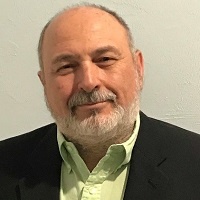
Artificial Intelligence (AI) in Economics and Finance
Artificial Intelligence (AI) has been a fundamental component of many activities in economics and finance in recent years. In this lecture we fist summarize some of the major impacts of AI tools in economics and finance and discuss future developments and limitations. In the second part of the talk we present details on neural network embeddings on corporate annual filings for portfolio selection.
Time and date of presentation: April 26, 2021 at 17.15 p.m. (GMT +3)
The stream of the session may be viewed via the link
APURVA SANGHI
World bank
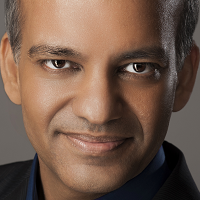
Russia Integrates: Deepening the Country’s Integration in the Global Economy
This study “Russia Integrates: Deepening the Country’s Integration in the Global Economy” assesses how GVCs have contributed to Russia’s development over the past two decades as well as the potential for GVCs to drive future economic growth. Based on the opportunities identified for Russia’s integration into GVCs, constraints are revealed and several policy recommendations developed to overcome these, covering areas of trade policy, domestic and traded services, and the role of institutional and regulatory quality in boosting FDI. While the analysis portrays Russia in a post-sanctions environment – distinctly less connected to global markets, less innovative, and with an unlevel playing field between public and private sectors that hinders competition – the findings indicate significant potential for Russia to make progress in terms of greater participation in the global economy. And while sanctions remain a first-order constraint for FDI, there are various measures that Russia can nonetheless take to make its business environment more conducive to trade and investment.
Time and date of presentation: April 19, 2021 at 9.15 a.m. (GMT +3)
The stream of the session may be viewed via the link
TIGRAN SARKISYAN
The Eurasian Development Bank
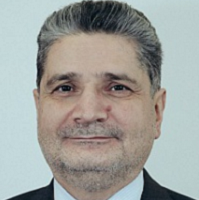
The Role of Supranational and International Institutions in the Digital Transformation of Eurasian Countries
This lecture will provide an analysis of priorities of the digital agenda-focused activities of the international development institutions in EAEU+ countries, as well as the concept of "digital sovereignty" for the Eurasian region. The lecture highlights the activities of the EDB Digital Initiatives Fund as a competence centre engaged in the implementation of Eurasian integration projects.
Time and date of presentation: April 14, 2021 at 12.00 p.m. (GMT +3)
The stream of the session may be viewed via the link
DAVID J. TEECE
Haas School of Business, University of California, Berkeley, USA
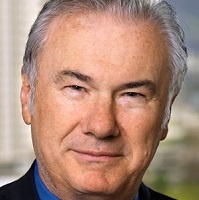
Dynamic Capabilities and Related Paradigms: Managing Innovation in the Uncertain World
This presentation will outline the dynamic capabilities framework which explains how entrepreneurial management is manifested in many technology-enabled Silicon Valley firms. The framework, along with foundational elements and contemporary illustrations, will be presented and then related to similar and often supporting paradigms such as ambidexterity (O’Reilly and Tushman) agility (Hamel) lean startups (Reis) evolutionary economics (Nelson and Winters) simple rules (Eisenhardt) and resources (Barney).
Time and date of presentation: April 15, 2021 at 10.15 a.m. (GMT +3)
The stream of the session may be viewed via the link
ASGHAR ZAIDI
Oxford Institute of Population Ageing, UK
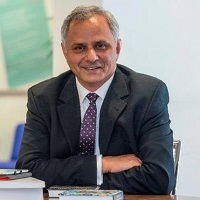
Active Ageing Index in non-European countries
The term active ageing was first articulated in the Active ageing: a policy framework (WHO) in 2002, which described “the process of optimizing opportunities for health, participation and security in order to enhance the quality of life as people age”. The core principles of active ageing were incorporated into the 2002 Madrid International Plan of Action on Ageing. The Active Aging Index (AAI), which measures the untapped potential of older people for active and healthy ageing, was developed in 2012 for the European countries. However, the need to measure the potential for active ageing also exists in non-European countries. The ability to calculate the AAI using a unified methodology allows cross-country comparison. This lecture is dedicated to the possibilities and specifics of measuring active ageing in non-European countries. We will discuss the features of the assessment and the directions of AAI adaptation in non-European countries. We also present the AAI results for non-European countries and compare the European and non-European countries.
Time and date of presentation: April 16, 2021 at 13.45 p.m. (GMT +3)
The stream of the session may be viewed via the link
HONORARY LECTURERS
VLADIMIR KLIMANOV
Institute for Public Finance Reform, Russia
Public Lecture of the Laureate of the ARETT Medal “In Recognition of Research in Economic Analysis”
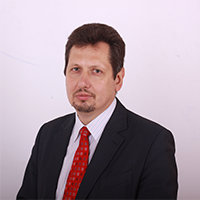
Fiscal Policy in Russia: Regional Conversion
The fiscal policy at the regional level is radically different from the one that is carried out at the federal level, since not all macro-principles work at the subnational level. A significant part of the budget revenues of the Russia’s regions is provided by the federal grants, which are one of the key factors of assuring a regional budget resilience. The crisis of 2020 substantially affected the regional budgets and changed the directions of subnational fiscal policy. The high differentiation of the Russia’s regions remains both in terms of budget indicators and the quality of regional fiscal management.
Time and date of presentation: April 16, 2021 at 12.00 p.m. (GMT +3)
The stream of the session may be viewed via the link
LEONID LIMONOV
ICSER “Leontief Centre”, HSE University - St. Petersburg, Russia
Public Lecture of the Laureate of the ARETT Medal “In Recognition of Research in Economic Analysis”
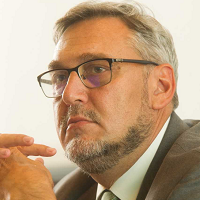
Russian cities: old problems and new challenges
The lecture examines the features of Russian urbanization at the present stage, as well as the differences between large and small cities in Russia both in terms of objective indicators of socio-economic development and subjective assessments and values of the population of these groups of cities (according to the European Social Survey). The groups of cities with different development trajectories are distinguished, the cases of small and medium-sized cities that do not belong to the largest urban agglomerations that have successfully overcome the transformation crisis are considered, and the features and sources of their resilience are discussed. An example of a federal project for the preservation of the cultural heritage of small historical cities and approaches to assessing its effectiveness and efficiency are considered. In conclusion, the impact of the coronavirus crisis on different groups of Russian cities and on the spatial transformations expected in the post-pandemic period is discussed.
Time and date of presentation: April 14, 2021 at 12.00 p.m. (GMT +3)
The stream of the session may be viewed via the link
INVITED SPEAKERS
FRANCOIS ALLISSON
University of Lausanne, Switzerland
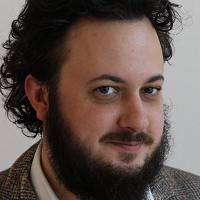
Léon Walras and the Fuzzy Legacy of the Lausanne School
The theory of general equilibrium, created by Léon Walras, became a landmark in economics. This is the first 100 years of a well-known story. Then came Sonnenschein, Mantel and Debreu, and things changed: microeconomists abandoned general equilibrium, and only a few macroeconomists still dare embedding general equilibrium as a microfondation device in their simulation model. What remains of the Lausanne School, 150 years after the so-called marginalist revolution? This presentation takes another take: beyond the already well-documented opposition between Léon Walras and Vilfredo Pareto, there is an alternative story to be told about the beginnings of the Lausanne School. Three Russian economists, gravitating around the Lausanne School, and in contact with Walras and/or Pareto, had their own alternative agenda for general equilibrium. Ladislaus von Bortkiewicz wanted to embed general equilibrium in a classical conception of value; Basile Samsonoff called for a physiocratic conception of general equilibrium; and Léon Winiarski embarked general equilibrium in a not-yet-existing econophysics. This presentation is a contribution to this peripheral - fuzzy – history of the Lausanne School.
Time and date of presentation: April 14, 2021 at 10.15 a.m. (GMT +3)
The stream of the session may be viewed via the link
Trinity Business School, Ireland
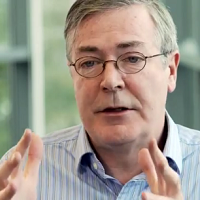
Does Decoupling Portend a Deglobalizing Future?
This paper questions whether the decoupling that has been observed in the global economy in recent times portends a deglobalizing future. It considers several instances of decoupling that had been in train prior to the pandemic and which in some cases have been exacerbated as a result of the advent of the pandemic. The commentary highlights the pivotal factors that have given rise to the recent decoupling and the ongoing dynamic involving China and the advanced economies particularly the USA. The implications for all firms in terms of their market-seeking, supply-seeking and knowledge-seeking activities are analysed. While decoupling can be considered to signal the early stages of deglobalization, there are also contrary signals to be observed such as in the case of financial flows. The commentary suggests that it may be premature to be anticipating globalization’s demise. Instead, it claims that today’s firms appear to be exposed to more than one standardized global paradigm, whose paradox of global interdependence needs to be more wisely framed as global and local forces, representing a duality of opposites-in-unity in accordance with the Eastern cognitive system of yin-yang balancing. The report includes some results of Brennan's colleague - Alessandra Vecchi.
Time and date of presentation: April 20, 2021 at 15.30 p.m. (GMT +3)
SAMUEL FREIJE-RODRIGUEZ
World Bank
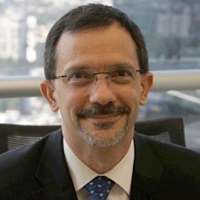
Poverty, inequality and shared prosperity indicators in the Europe and Central Asia region
This presentation will be based on the recent 2020 Poverty and Shared Prosperity Report -a biannual World Bank report that monitors global and regional poverty numbers- including a series of new poverty rates (under 5 different methodologies), as well as inequality and shared prosperity indicators for most countries in the region. The presentation will also include a discussion of nowcasts for years 2020 and 2021 of the impact of COVID upon poverty in the region.
Time and date of presentation: April 16, 2021 at 15.30 p.m. (GMT +3)
The stream of the session may be viewed via the link
GILLES CAMPAGNOLO
Aix-Marseille University, France
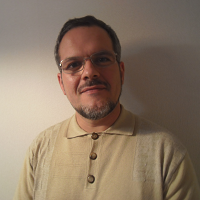
Carl Menger, 1871: German and Austrian Ideologies Compared
Bearing in mind that the Methodenstreit (“Dispute over the Methods”) of the 1880s between Carl Menger (1840-1921) and Gustav von Schmoller (1838-1917) remains as one central feature in the evolution of economic methodology, it is good to trace its origins back to Menger’s first work, his theoretical masterwork, the Grundsätze der Volkswirtschaftslehre, published in Vienna in 1871. 150 years after the Principles were published ‒ and as the (first!) French edition came out in 2020 ‒ it is possible to examine various related aspects displayed in Menger’s private collection (consisting of books in the disciplines at stake and travel literature with quasi-ethnological descriptions). This presentation offers a comparative perspective between German and Austrian “ideologies”, as well as some comments on their impact upon the conditions for the development of contemporary civilization in those times of the "Great Crossroads".
Time and date of presentation: April 14, 2021 at 10.15 a.m. (GMT +3)
The stream of the session may be viewed via the link
KARI LIUHTO
Pan-European Institute Turku School of Economics, Finland
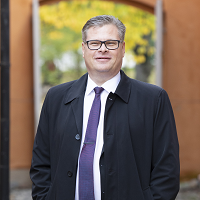
A role of liquefied natural gas (LNG) in the EU’s energy supply: A special emphasis on the Baltic Sea region
International liquefied natural gas (LNG) trade has tripled in this millennium. As a result of the LNG boom, the share of the LNG has jumped from a bit over 10 percent in the year 2000 to over 20 percent in the EU’s contemporary natural gas imports. The LNG boom has touched the Baltic Sea region as well. In the mid-2010’s, the first large-scale LNG-receiving terminals were constructed in Lithuania and Poland, and a few years later, the Kaliningrad region received its own LNG-receiving unit. However, Germany, the EU’s largest natural gas consumer, has not built an LNG unit on its shores yet. The completion of the Nord Stream 2 during this year may delay the German LNG terminal projects further or even stop some of them. In addition to Nord Stream 2, the EU’s Green Deal and the possible hydrogen revolution may slow down the spread of the LNG boom in the Baltic Sea region. This report aims to deal with the recent LNG development in the EU, putting a special emphasis on the Baltic Sea region.
Time and date of presentation: April 16, 2021 at 12.00 p.m. (GMT +3)
Presentation of the paper
HARRO MAAS
University of Lausanne, Switzerland
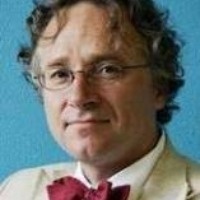
Jevons on the unity of scientific method
Jevons is commonly considered as one of the founders of the so-called marginalist revolution. For a long time, historians of economics have concentrated on the work that is of undoubted importance for this, his Theory of Political Economy. However, Jevons himself considered his Principles of Science, first published in 1874, his main work. The book is an important contribution to contemporary debates on scientific method, and the method of the science of economics more in particular. In my contribution, I will situate Jevons's Principles of Science against some of his major other scientific endeavors, most notably his work in statistics and logic.
Time and date of presentation: April 14, 2021 at 10.15 a.m. (GMT +3)
The stream of the session may be viewed via the link
RUSSELL PITTMAN
U.S. Department of Justice, USA
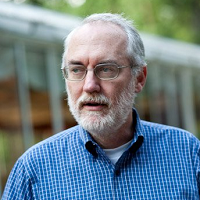
Three Economist’s Tools for Antitrust and Merger Analysis: Case Applications
This paper presents a non-technical introduction to three economic tools that have become widespread in competition law enforcement in general and in the analysis of proposed mergers in particular in recent years: critical loss analysis, upward pricing pressure, and the vertical arithmetic. In addition, for each tool,its use in a recent U.S. merger case is discussed: for critical loss analysis, the Novelis/Aleris merger; forupward pricing pressure, the GE/Electrolux merger; and for the vertical arithmetic, Premdor/Masonite.
Time and date of presentation: April 19, 2021 at 17.15 p.m. (GMT +3)
The stream of the session may be viewed via the link